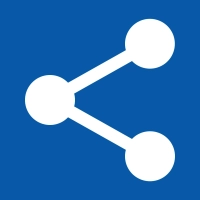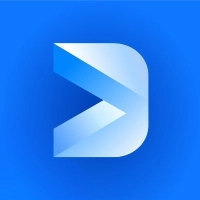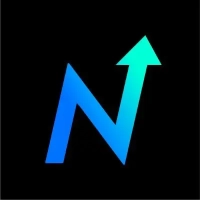Unleashing the Future: Exploring the Power of Decentralized Social and Applications
In the rapidly evolving world of technology and digital innovation, decentralized social and applications are emerging as a powerful force that is disrupting traditional centralized systems. Blockchain technology is at the forefront of this revolution, enabling the creation of decentralized applications (DApps) and ushering in a new era of web3.0 and smart contracts. This blog explores the potential and impact of decentralized social and applications, showcasing the power of borderless technology, community-driven initiatives, and inclusive innovation. Join us as we delve into the exciting world of decentralized technology and discover how it is pioneering the future of digital transformation and collective empowerment. November 18, 2023 13:10
The rise of decentralized social and applications
The rise of decentralized social and applications has been fueled by a growing dissatisfaction with the limitations and drawbacks of centralized systems. Traditionally, social media platforms and applications have been controlled by a single entity, often leading to issues such as data breaches, censorship, and lack of transparency.
Decentralized social and applications, on the other hand, operate on the principles of blockchain technology, where power is distributed among a network of nodes instead of being concentrated in the hands of a few. This not only ensures greater security and privacy for users but also enables the creation of trustless and censorship-resistant platforms.
Moreover, decentralized applications are built on smart contracts, which are self-executing agreements that run on the blockchain. They eliminate the need for intermediaries, enabling peer-to-peer transactions and greater efficiency.
In the next section, we will explore some of the real-world applications of decentralized social and applications and the benefits they offer in terms of user control, economic incentives, and global collaboration. Stay tuned!
Exploring the benefits of decentralization in social and applications
Decentralized systems are revolutionizing the way we interact with social media platforms and applications. By shifting power away from centralized entities, we are witnessing a multitude of benefits that enhance user experiences and drive innovation.
One significant advantage of decentralized social and applications is the level of user control they offer. Instead of being dictated by a single entity, users have the ability to govern their own data and choose how it is shared. This ensures greater privacy and protection against data breaches. Additionally, it allows users to curate their own experiences, tailoring their feeds and networks to align with their interests.
Another noteworthy benefit is the economic incentives that decentralized systems provide. By utilizing blockchain technology, users can be rewarded for their contributions and engagement. This incentivizes active participation and fosters a sense of collective ownership within the community.
Furthermore, the decentralized nature of these applications promotes global collaboration. With the elimination of intermediaries, peer-to-peer transactions are made possible, enabling individuals from different parts of the world to connect and transact without barriers. This opens up new opportunities for cross-cultural communication, knowledge sharing, and collaborative problem-solving.
In the next section, we will delve deeper into specific examples where decentralized social and applications have made a significant impact. Get ready to explore a world of limitless possibilities and discover how decentralization is shaping our future. Stay tuned!
The power of user ownership and control
When it comes to decentralized social media platforms and applications, one of the most powerful aspects is the level of user ownership and control. Unlike traditional centralized systems where data is controlled by a single entity, decentralized platforms are designed to give users complete control over their data.
With decentralized systems, users can decide how their data is shared, who has access to it, and what they want to do with it. This not only ensures greater privacy and security, but also empowers individuals to take ownership of their online presence.
Imagine being able to curate your own social media experience, tailoring your feeds and networks to align with your interests and values. Decentralized platforms make this possible by allowing users to have a say in the content they consume and the communities they engage with.
In addition to user control, decentralized systems also offer economic incentives for active participation. By utilizing blockchain technology, users can be rewarded for their contributions to the network. This could mean earning cryptocurrency tokens for creating and sharing content, or even for simply engaging with others.
These economic incentives foster a sense of collective ownership within the community. As users work together to improve the platform and enhance the user experience, they become active participants in shaping the future of social media and applications.
In the next section, we will explore specific examples of decentralized social media platforms and applications that have successfully implemented user ownership and control. From peer-to-peer marketplaces to decentralized messaging apps, we will examine how these platforms empower users and provide a glimpse into the possibilities of a decentralized future. Stay tuned!
Examples of successful decentralized social and applications
In this section, we will dive into specific examples of decentralized social media platforms and applications that have successfully implemented user ownership and control. These platforms are revolutionizing the way we interact and connect in the digital world, paving the way for a decentralized future.
One notable example is Steemit, a decentralized blogging platform that rewards users with cryptocurrency tokens for creating and curating content. Through their unique blockchain-based voting system, Steemit ensures that quality content is recognized and rewarded by the community. This not only empowers content creators but also encourages active participation from users who can earn rewards by engaging with the platform.
Another example is Mastodon, a decentralized microblogging platform that operates on a federated network. Unlike traditional platforms where a single entity controls everything, Mastodon allows users to join or create their own communities called instances. Each instance is independently operated, giving users complete control over their data and the ability to connect with like-minded individuals.
The possibilities of decentralized social media platforms and applications are endless. Whether it's a decentralized messaging app like Matrix or a peer-to-peer marketplace like OpenBazaar, these platforms are reshaping the Internet landscape and giving users the power to shape their own online experiences.
In the next section, we will further explore the advantages and challenges of decentralized systems, and how they can contribute to a more equitable and inclusive digital ecosystem. Stay tuned for more insights!
Overcoming challenges in decentralized systems
While decentralized social media platforms and applications offer many benefits, they also bring along their fair share of challenges. In this section, we will delve into some of these challenges and how they can be overcome to ensure the success and widespread adoption of decentralized systems.
One major challenge in decentralized systems is scalability. Traditional centralized platforms have the advantage of efficient infrastructure and resources, allowing them to handle large user bases and heavy traffic. Decentralized platforms, on the other hand, rely on a network of participants, which can make it difficult to scale and handle increased demand. However, with technological advancements such as sharding and off-chain solutions, developers are working towards improving scalability in decentralized systems.
Another challenge is governance. In decentralized platforms, there is often a need for decision-making processes to ensure the platform's integrity and avoid conflicts. Unlike traditional platforms where a central authority makes decisions, decentralized platforms require consensus among participants. Implementing effective governance models that allow for transparency, inclusivity, and accountability is crucial in overcoming this challenge.
Security is also a critical concern in decentralized systems. With no central authority to oversee and protect user data, decentralized platforms need robust security measures to safeguard against hacking, fraud, and other malicious activities. The use of encryption, smart contracts, and decentralized identity solutions can help mitigate these risks and ensure the privacy and security of user data.
Interoperability is another challenge in decentralized systems. With various platforms and instances operating independently, it can be difficult for users to connect and interact seamlessly. Standardization protocols, APIs, and cross-platform compatibility initiatives can bridge these gaps and enable smoother communication and collaboration between decentralized platforms.
Education and awareness play a significant role in overcoming these challenges. Understanding the potential of decentralized systems and promoting their benefits to users, developers, and regulators can help drive adoption and innovation in this space.
In the next section, we will explore the potential impact of decentralized systems in various industries, including finance, healthcare, and governance. Stay tuned to discover how these technologies can revolutionize our everyday lives and shape the future of human interactions.
The future of decentralized social and applications
The future of decentralized social media platforms and applications is filled with immense potential and opportunities. As more individuals become aware of the benefits and possibilities offered by decentralized systems, we can expect to see widespread adoption across various industries.
One industry that stands to greatly benefit from decentralized systems is finance. Traditional financial institutions often have complex systems and high transaction fees. With decentralized finance (DeFi), individuals can access financial services such as lending, borrowing, and trading without the need for intermediaries. This allows for greater financial inclusion and empowers individuals to have more control over their financial activities.
Healthcare is another industry that can be transformed by decentralized systems. With decentralized electronic health records, patients can have ownership of their medical data and securely share it with healthcare providers. This can enhance the efficiency and accuracy of diagnoses and treatments, leading to better patient outcomes.
Governance is yet another area where decentralized systems can bring about positive change. Through decentralized voting and decision-making mechanisms, individuals can actively participate in shaping policies and regulations. This promotes transparency, accountability, and fairness in governance processes.
As we progress into the future, it is important to continue exploring and developing decentralized social media platforms and applications. By addressing the challenges of scalability, governance, security, and interoperability, we can unlock the full potential of decentralized systems and revolutionize the way we interact with technology and each other.
In the next section, we will take a closer look at some real-world examples of decentralized systems in action and how they are impacting industries and societies. Join us as we dive into the exciting world of decentralized technology and its transformative power.
User Comments (0)
Popular DeSo Apps










